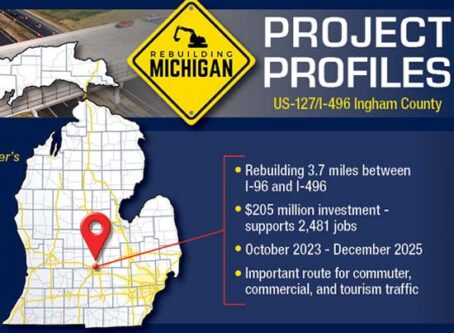AB5 injunction dissolved as courtroom battles continue
One injunction related to California’s Assembly Bill 5 has ended, while another has been approved.
The U.S. District Court for the Southern District of California on Monday, Aug. 29, formally dissolved a nearly three-year injunction that prevented the state from enforcing the worker classification law on the trucking industry.
On the same day in Alameda County’s Superior Court of California, the Port of Oakland’s motion for a stipulated permanent injunction in response to AB5 protests was approved. The injunction is aimed at stopping AB5 protesters from blocking traffic and impeding commerce.
Injunction dissolved
AB5, which codified the ABC Test, makes it more difficult for a worker to be considered an independent contractor. Many in the trucking industry, including the California Trucking Association and the Owner-Operator Independent Drivers Association, said the 2019 law would force the end of the owner-operator model in the state. The B prong seems to be the sticking point as it doesn’t allow workers who perform functions inside the company’s usual course of business to be considered independent contractors.
Shortly after AB5 was passed, the California Trucking Association received a preliminary injunction from the district court. The trucking group contended that AB5 was preempted by the Federal Aviation Administration Authorization Act, which prevents states from enforcing a law related to a price, route or service of motor carriers.
The district court found that AB5 was likely to be preempted. In 2021, the U.S. Court of Appeals for the Ninth Circuit disagreed, calling AB5 a “generally applicable labor law.”
The injunction remained in place as the California Trucking Association petitioned the U.S. Supreme Court. But on June 30, the Supreme Court announced it denied the trucking group’s petition to review the case, ultimately kicking it back to the district court.
On Monday, the district court officially ended the injunction.
What’s next with AB5?
Although the injunction is officially dead, it doesn’t mean that the legal battles are over.
The California Trucking Association has until Oct. 11 to file a renewed motion for a preliminary injunction. Dec. 2 is the deadline for final briefs regarding another injunction. After that, the court will decide whether to schedule any hearings.
How exactly California will enforce the law remains unclear. Last week, California’s Employment Development Department and Department of Industrial Relations hosted a webinar to provide some clarity.
However, the diversity of the trucking industry makes it difficult to provide truckers any one-size-fits-all answers.
Bryce Mongeon, OOIDA’s director of legislative affairs, said last week that the Association was still working to get clear answers for truck drivers operating in California.
“At first glance, this may help to answer some questions, but given the diversity of the trucking industry, it’s nearly impossible to make any definitive statements about how the law will be enforced,” Mongeon said. “We will continue to review and be in contact with the state to help get some clarity for truckers.”
Port of Oakland
The Supreme Court’s decision to not hear the AB5 case led to protests at the Port of Oakland in July.
The protests, which lasted several days, led to a 28% decrease in container volume, according to port officials.
In response to the protest, port officials filed a complaint for injunctive relief on July 25 with the Superior Court of California in Alameda County. A temporary restraining order was granted on Aug. 2.
On Aug. 29, the court ordered that Navdeep Ngill, Filmon Teklehaimanot and those acting in concert with them “shall not intentionally block or impede ingress into, egress from, or the passage of vehicles or persons through, Port of Oakland facilities.”
Inadvertent blocking for less than 10 minutes will not be considered a violation of the injunction.
“We are pleased to see that the court has reaffirmed the critical need to preserve the safe and timely flow of commerce,” said Marilyn Sandifur, media and public relations manager for the Port of Oakland. LL









